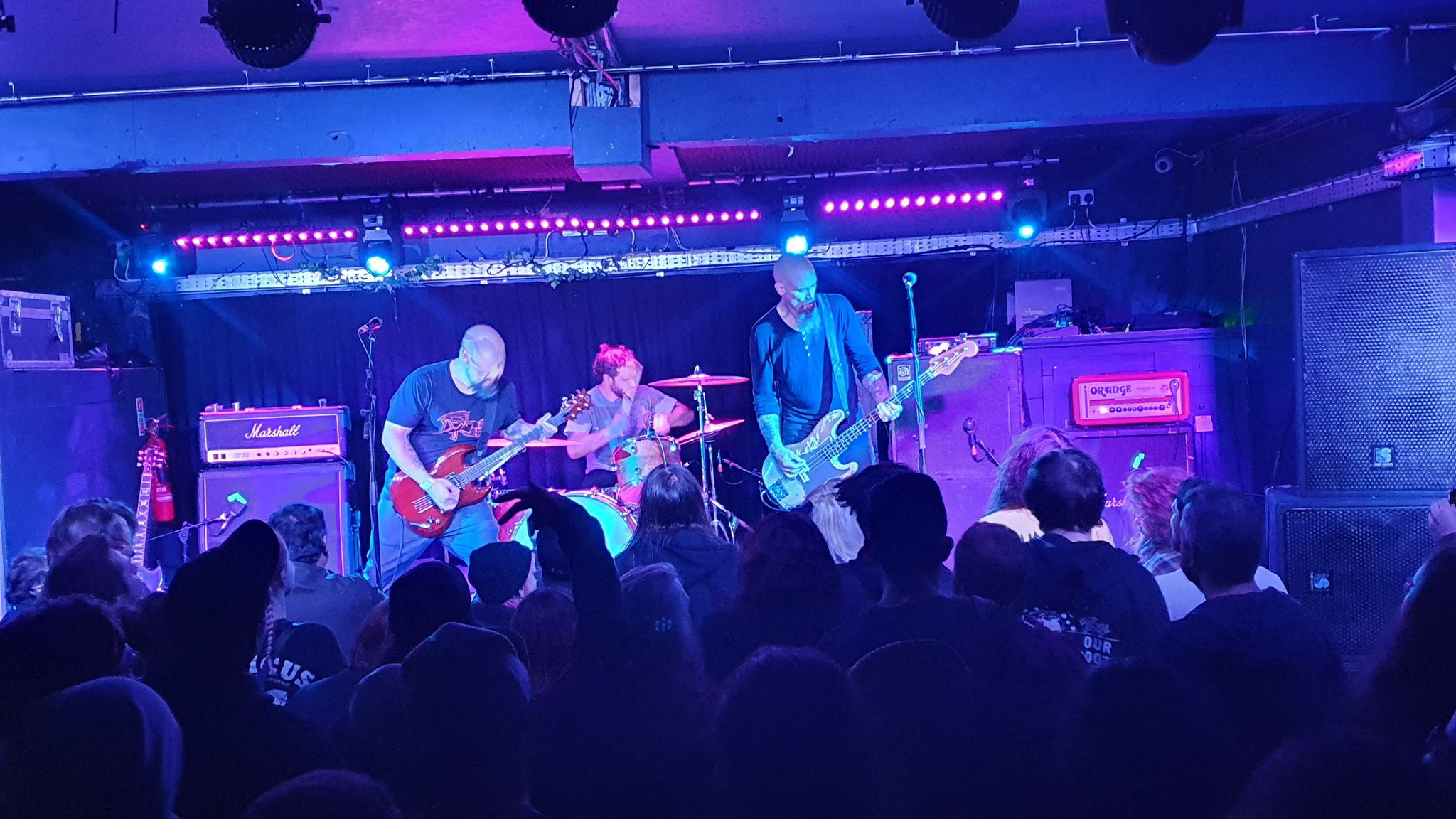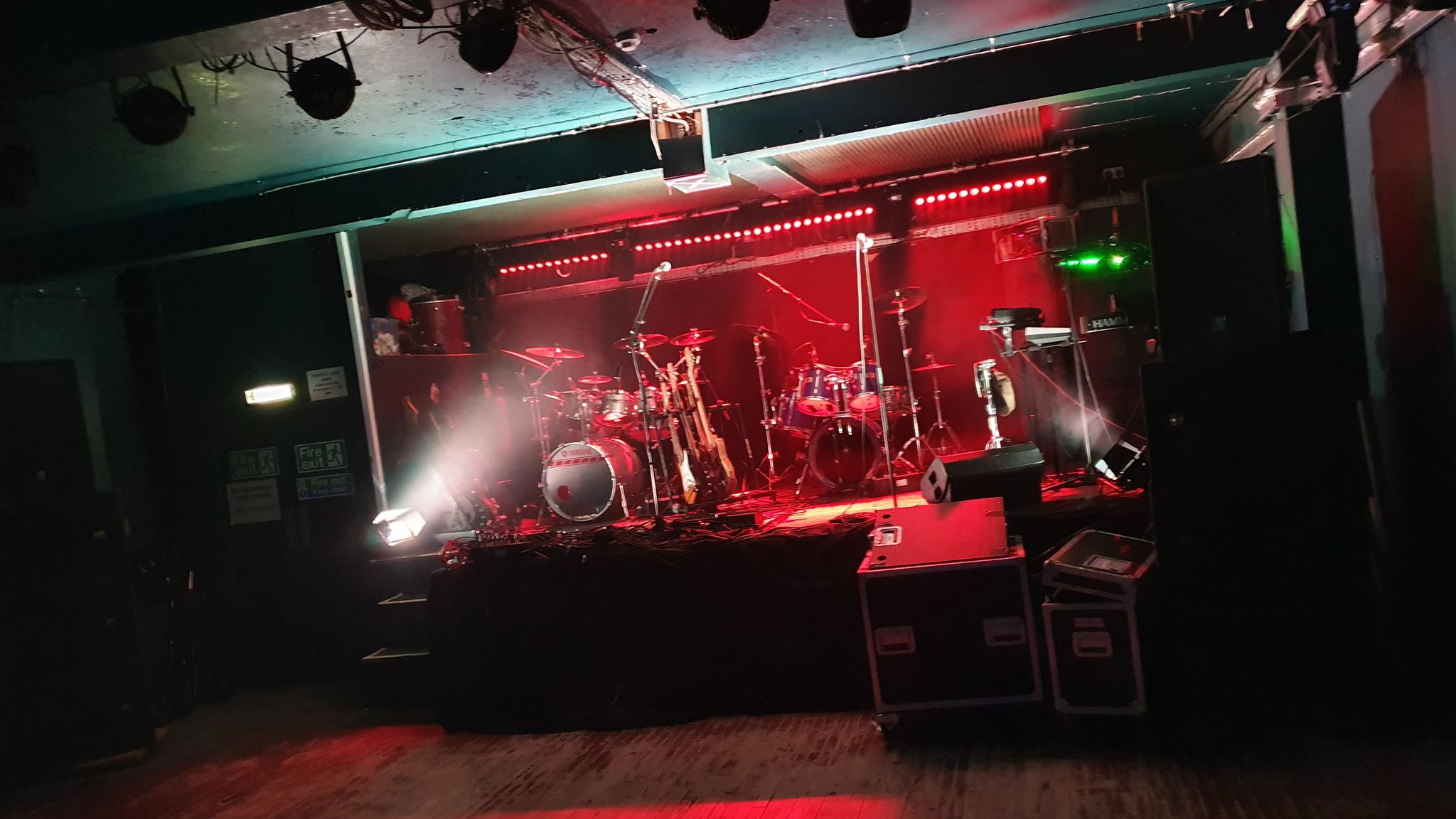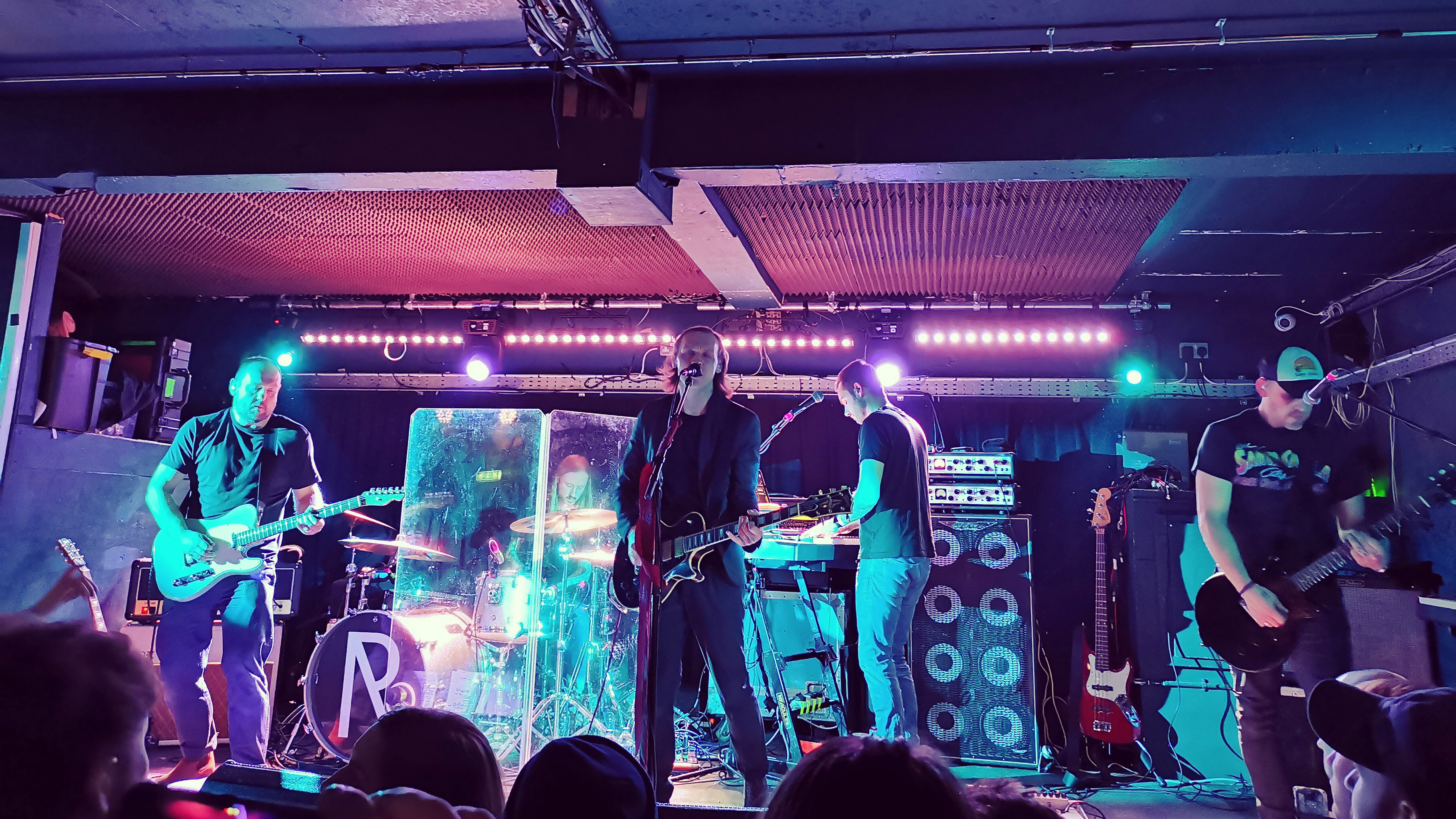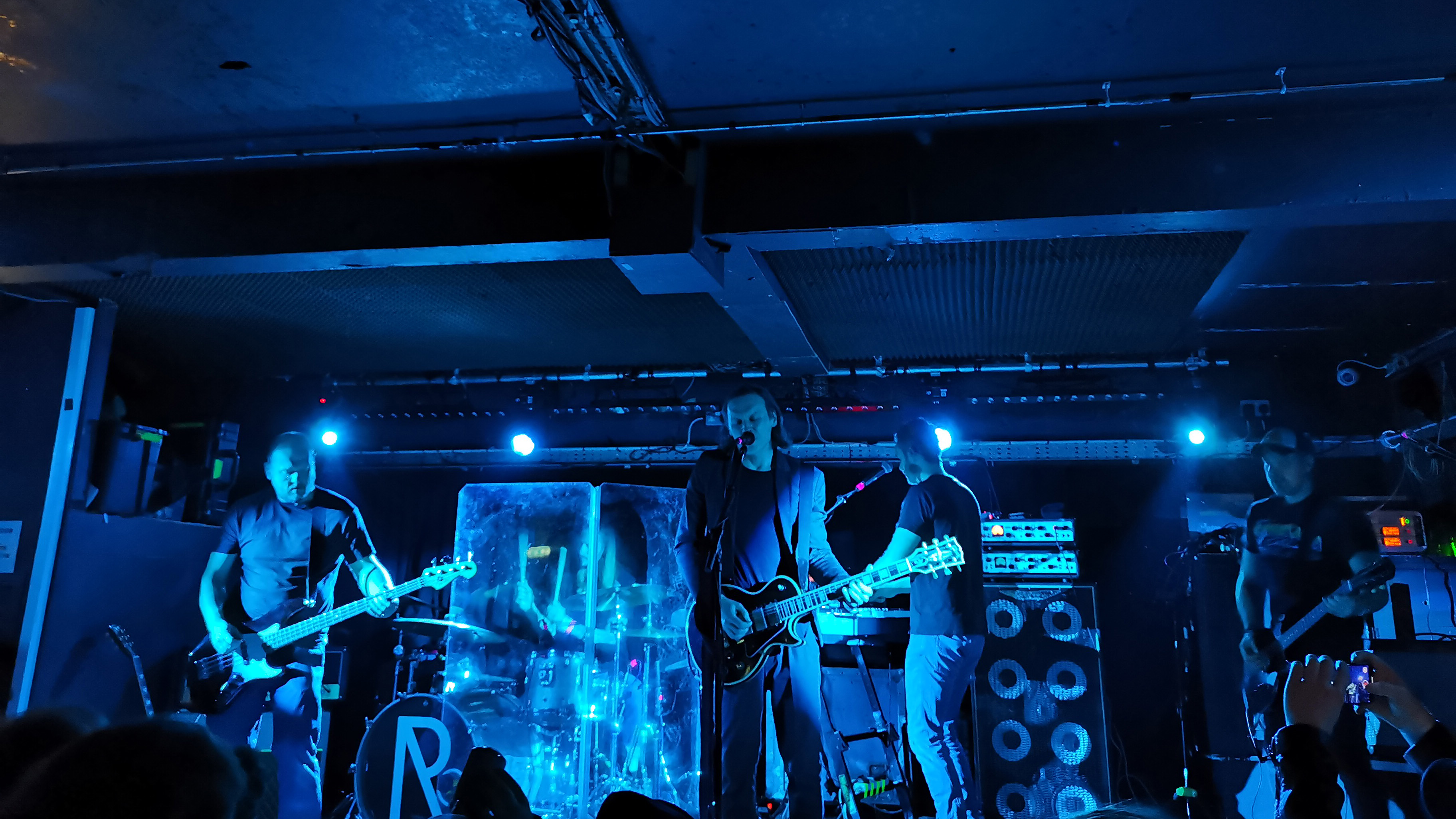
If 2020 was an incredibly tough one for live music, there's no sign of it letting up anytime soon. The pandemic lockdowns are a necessary reality but the way governments support artists and venues is open to debate; in the UK a disconnect has been exposed between state support and the live music scene that was worth £4.5 million to the UK economy in 2019. Add in Brexit's VISA challenges for musicians and it makes for a grim scenario. But through this turmoil there is hope.
The PRS for Music recently backtracked on its decision to charge tariffs for online live stream shows. And UK venue manager Matt Otridge for one is relieved to see it. "I am very happy that PRS backtracked on the proposed streaming tariff," he tells us. "It is still very disappointing that they did not choose to consult with artists, promoters and venues prior to making the decision. I hope moving forward that PRS can learn from this experience and work collaboratively with other stakeholders.
Matt is the manager and a director co-founder of Exchange in Bristol – one of the city's vital music venues for local and international artists and one that is owned by the community after a 2018 campaign to sell shares in it to the public.

"I can honestly say that I can't imagine an organisation could have done more for their network than Music Venue Trust has over the past year"
Matt saw the effects of the PRS tariffs firsthand when they were launched in December. "We have already seen a significant amount of shows get cancelled," he notes. "Earning opportunities are currently so few and far between, artists really can't afford to be losing any of them. Clearly artists deserve to get paid through publishing rights, but the fact that the outcry from the artists is just as loud as the venues indicated PRS got this wrong."
The dust may have settled on that controversy but there's plenty of challenges to overcome while venues stay closed. Matt is also the South West Regional Coordinator for the Music Venue Trust, a charity that is at the forefront of defending and supporting grassroots venues in the UK. "I can honestly say that I can't imagine an organisation could have done more for their network than MVT has over the past year," he says.
We talked to him about this support and the failures he's seen elsewhere.
What were the first few months of the lockdown like for the venue last year?
Want all the hottest music and gear news, reviews, deals, features and more, direct to your inbox? Sign up here.
"For us the most stressful part was just before the lockdown when it was hard to make a decision on what the responsible thing to do was. In the end we were one of the first Bristol venues to announce that we would be shutting, but at the time we had very little to base our decision on and the information coming from Government wasn't helpful at all (especially at the point where Boris was telling people not to go to venues, but not forcing us to shut down).
"After making that decision there was a sense of relief, and the furlough announcement followed fairly shortly afterwards and that addressed our biggest concern in being able to support our staff. I realised early on that we were one of the lucky venues, we had reserves from our community share raise in 2018. and the flexibility of knowing the building is owned by three of our directors.
"If this happened two or three years ago we would have been in the situation that most venues had to face, and I know from talking to many of them that this was an incredibly difficult period."

At what point did things improve in terms of support?
"In terms of financial support the big game changer was the announcement of the Culture Recovery Fund. The furlough and Local Authority grants were obviously helpful as well, but for most the LA grants disappeared within a few months.
" In terms of feeling supported, the Music Venue Trust acted incredibly fast to provide support based on disseminating the information coming through and reporting the facts, and also providing an emotional support group of sorts that allowed many to deal with these unprecedented challenges."
What additional support has been available to the venue during this period and how has it helped you?
Aside from the support already mentioned, MVT have supported venues - the majority of whom have never received public funding before - with both rounds of Culture Recovery Funding with an enormous success rate. Exchange was successful in our CRF1 bid, and that can be partly attributed to MVT's review system.
"On top of that the #saveourvenues campaign – which has raised almost £4m so far – has ensured that numerous venues have lived to fight another day. The forward planning and the way the organisation reacts to every new challenge is incredible and I say that as someone not involved in this level of decision making. I am very grateful for the opportunity to play a small part in helping during this time, and I know from the feedback that I have received here in the South West that there are many venues who are grateful for the support they have given.
You’ve been hosting streamed online gigs for artists, how has that been going so far?
"So far we have been presenting a mix of streamed gigs and bespoke online content, and it's been a really positive experience. We have managed to find work for members of staff and the wider creative community, and I think for most of them have been very grateful to learn new skills and to just experience some normality! It's also been nice to be able to support bands and just keep in touch with our wider community during such a difficult period."
What are your thoughts on the PRS tariffs that were introduced in December [and since withdrawn] for online gigs when its members’ work is performed?
"Really disappointed. Currently we only ask for donations and because we use YouTube we believe we are exempt from paying them, but our plan was to build up to using paywall opportunities for bands with a higher profile.
"These tariffs throw this into question at a time where artists and freelancers are desperately crying out for work. The backlash from venues, artists and audiences demonstrates that PRS really dropped the ball here and it's quite frankly staggering to think they made this decision with little or no consultation from the wider industries."

"It feels like there is still an opportunity for the government to get a deal in place that can protect against this"
When the venue can reopen for traditional shows, do you foresee a downturn in artists touring in the UK from the European mainland now it is no longer part of the EU?
"It's hard to judge at the moment, but my gut feeling is yes. Anything that makes touring more difficult or more expensive will undoubtedly have a knock on effect at the level where bands are losing money to tour.
"It feels like there is still an opportunity for the government to get a deal in place that can protect against this, and I would urge the powers that be to make sure that such an arrangement can be made when touring is possible again."
"If there was support / tax cuts that recognised the fact that grassroots music venues are the research and development arm of the UK music industry they would be welcome"
What would you like to see happen in the short-term and long-term in terms of state support for grassroots venues like yourselves?
"One positive thing that came out of 2020 was the amount of GMVs that received public funding for the first time. When you look at venues across Europe, many have been receiving public funding for years - in France I understand that the average venue is subsidised to the tune of around 60%.
"If there was support / tax cuts that recognised the fact that GMVs are the research and development arm of the UK music industry they would be welcome. I would also like to see government develop tax incentives that would allow communities to purchase their own venue freeholds. Again, venue ownership is a real problem in the UK, and whilst 93% of GMV properties in the UK aren't owned by the people running them [but private landlords and local councils], there will always be problems in times of crisis."
To stay up to date with Exchange Bristol's live streamed gigs and future plans visit Exchange Bristol. For more information on the work of the Music Venue Trust visit musicvenuetrust.com

Rob is the Reviews Editor for GuitarWorld.com and MusicRadar guitars, so spends most of his waking hours (and beyond) thinking about and trying the latest gear while making sure our reviews team is giving you thorough and honest tests of it. He's worked for guitar mags and sites as a writer and editor for nearly 20 years but still winces at the thought of restringing anything with a Floyd Rose.